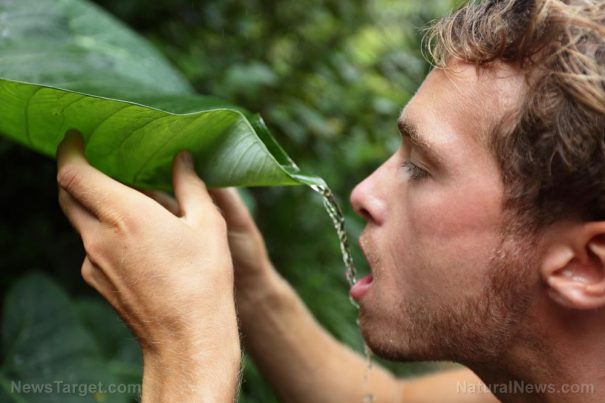How to safely forage for food when things turn sour
Monday, November 12, 2018 by Michelle Simmons
http://www.bugout.news/2018-11-12-how-to-safely-forage-for-food.html

For long-term survival situations, knowing how to forage is important. Foraging needs a good knowledge of the environment and some practice in the wild, but these six tips can help you when foraging: (h/t to PreppersWill.com.)
- Eat only what you know: When looking for food, it’s best to stick with what you know. There are many edible plants, but there are also a lot of poisonous foods that you may be unaware of. Although this may limit your options for obtaining food, it will also lower your risk of getting poisoned — which you would not want when you are out in the wild. This tip may sound like common sense, but many people actually ignore this. Some wild plants you can eat include fireweed, dandelion, chickweed, curly dock, chicory, wood sorrel, bull thistle, alfalfa, broadleaf plantain, and many more.
- Go easy with unfamiliar plants: The rule above should be followed, but you should not go overboard either. If you really have to go beyond the range of plants that you know, then you have to take some precautionary measures. When trying out an unfamiliar plant, start by taking just a small part to see how your body will react to it. If it did not cause any adverse reactions after 24 hours, then you can make it part of your daily meal. (Related: Edible or poisonous? Tips on how to determine which wild plants are safe to consume.)
- Eat only what you can to save your energy: Conserving energy and working smart are also important when foraging. Eat only what you can eat. Do not go after foods that will require you so much effort and time, leaving you with no energy. Stick to foraging tasks that do not need much effort and time and plants that you can easily identify.
- Avoid harvesting everything and save some for later: No matter how hungry you are, fight the urge to harvest all food available at once. Instead, learn to harvest the food bit by bit. This will prevent you from depleting your food source at once. This will also prevent you from damaging the plants and making sure that your food source will last longer. In addition, this will serve as a backup plan if the crisis extends. You can also plant the seeds or stem of the food within the area of your campsite to produce more food if you need to stay in the area for a longer time.
- Stick to daytime foraging: It is best and smart to avoid going out to find food after the sun has set. Even experienced campers and survivalists avoid going out at night because they can still get injured. This is especially important if you are stranded in an unfamiliar area. You will never know whether you will encounter a wild animal or get lost on the way back to your campsite. It is also important to not risk getting injured because a small injury can leave you incapacitated for a long time, especially when you do not have proper medical care.
- Be aware of the competition: The delicious berries you have found can also attract other animals because you are not the only living creature that is foraging for food out there. Wild animals, whether small or big, can pose a threat to your safety. You might encounter a bear or a snake while picking some berries. Be cautious of your surroundings and do not shake the shrub when foraging.
Read more prepping and survival stories to increase your chances of survival by going to Preparedness.news.
Sources include:
Tagged Under: Tags: edible plants, emergency food, foraging, how-to, preparedness, preparedness and survival, prepping, survival, survival food, wild foods, wild plants

